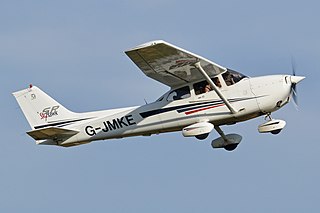
An aircraft is a vehicle that is able to fly by gaining support from the air. It counters the force of gravity by using either static lift or the dynamic lift of an airfoil, or, in a few cases, direct downward thrust from its engines. Common examples of aircraft include airplanes, helicopters, airships, gliders, paramotors, and hot air balloons.

A battle is an occurrence of combat in warfare between opposing military units of any number or size. A war usually consists of multiple battles. In general, a battle is a military engagement that is well defined in duration, area, and force commitment. An engagement with only limited commitment between the forces and without decisive results is sometimes called a skirmish.
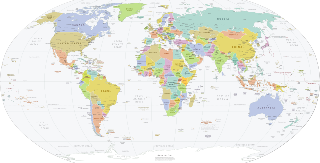
A country is a distinct part of the world, such as a state, nation, or other political entity. It may be a sovereign state or make up one part of a larger state. For example, the country of Japan is an independent, sovereign state, while the country of Wales is a component of a multi-part sovereign state, the United Kingdom. A country may be a historically sovereign area, a currently sovereign territory with a unified government, or a non-sovereign geographic region associated with certain distinct political, ethnic, or cultural characteristics.
C is a general-purpose computer programming language. It was created in the 1970s by Dennis Ritchie, and remains very widely used and influential. By design, C's features cleanly reflect the capabilities of the targeted CPUs. It has found lasting use in operating systems, device drivers, protocol stacks, though decreasingly for application software. C is commonly used on computer architectures that range from the largest supercomputers to the smallest microcontrollers and embedded systems.
Espionage, spying, or intelligence gathering is the act of obtaining secret or confidential information (intelligence). A person who commits espionage is called an espionage agent or spy. Any individual or spy ring, in the service of a government, company, criminal organization, or independent operation, can commit espionage. The practice is clandestine, as it is by definition unwelcome. In some circumstances, it may be a legal tool of law enforcement and in others, it may be illegal and punishable by law.

Genealogy is the study of families, family history, and the tracing of their lineages. Genealogists use oral interviews, historical records, genetic analysis, and other records to obtain information about a family and to demonstrate kinship and pedigrees of its members. The results are often displayed in charts or written as narratives. The field of family history is broader than genealogy, and covers not just lineage but also family and community history and biography.

A website is a collection of web pages and related content that is identified by a common domain name and published on at least one web server. Websites are typically dedicated to a particular topic or purpose, such as news, education, commerce, entertainment or social networking. Hyperlinking between web pages guides the navigation of the site, which often starts with a home page. As of December 2022, the top 5 most visited websites are Google Search, YouTube, Facebook, Twitter, and Instagram.
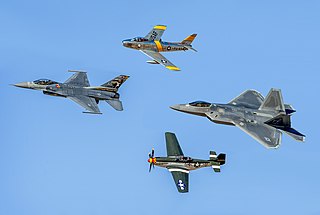
A military aircraft is any fixed-wing or rotary-wing aircraft that is operated by a legal or insurrectionary military of any type. Military aircraft can be either combat or non-combat:

The concept of First World originated during the Cold War and comprised countries that were under the influence of the United States and the rest of NATO and opposed the Soviet Union and/or communism during the Cold War. Since the collapse of the Soviet Union in 1991, the definition has instead largely shifted to any country with little political risk and a well-functioning democracy, rule of law, capitalist economy, economic stability, and high standard of living. Various ways in which modern First World countries are usually determined include GDP, GNP, literacy rates, life expectancy, and the Human Development Index. In common usage, "first world" typically refers to "the highly developed industrialized nations often considered the westernized countries of the world".
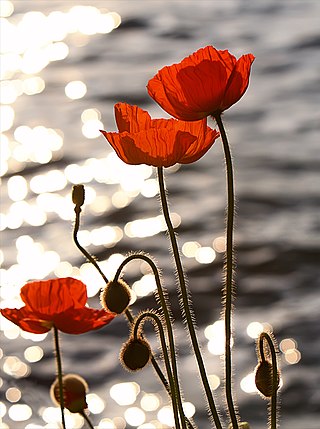
A poppy is a flowering plant in the subfamily Papaveroideae of the family Papaveraceae. Poppies are herbaceous plants, often grown for their colourful flowers. One species of poppy, Papaver somniferum, is the source of the narcotic drug mixture opium which contains powerful medicinal alkaloids such as morphine and has been used since ancient times as an analgesic and narcotic medicinal and recreational drug. It also produces edible seeds. Following the trench warfare in the poppy fields of Flanders, Belgium during World War I, poppies have become a symbol of remembrance of soldiers who have died during wartime, especially in the UK, Canada, Australia, New Zealand and other Commonwealth realms.
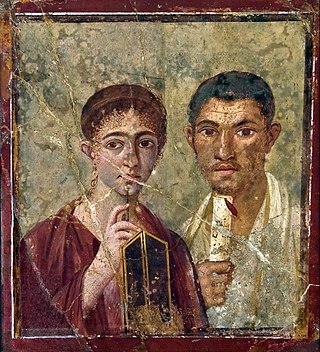
In the study of history as an academic discipline, a primary source is an artifact, document, diary, manuscript, autobiography, recording, or any other source of information that was created at the time under study. It serves as an original source of information about the topic. Similar definitions can be used in library science and other areas of scholarship, although different fields have somewhat different definitions.

Starvation is a severe deficiency in caloric energy intake, below the level needed to maintain an organism's life. It is the most extreme form of malnutrition. In humans, prolonged starvation can cause permanent organ damage and eventually, death. The term inanition refers to the symptoms and effects of starvation. Starvation may also be used as a means of torture or execution.

A draft horse (US), draught horse (UK) or dray horse, less often called a carthorse, work horse or heavy horse, is a large horse bred to be a working animal doing hard tasks such as plowing and other farm labor. There are a number of breeds, with varying characteristics, but all share common traits of strength, patience, and a docile temperament which made them indispensable to generations of pre-industrial farmers.

Germanic paganism or Germanic religion refers to the traditional, culturally significant religion of the Germanic peoples. With a chronological range of at least one thousand years in an area covering Scandinavia, the British Isles, modern Germany, and at times other parts of Europe, the beliefs and practices of Germanic paganism varied. Scholars typically assume some degree of continuity between Roman-era beliefs and those found in Norse paganism, as well as between Germanic religion and reconstructed Indo-European religion and post-conversion folklore, though the precise degree and details of this continuity are subjects of debate. Germanic religion was influenced by neighboring cultures, including that of the Celts, the Romans, and, later, by the Christian religion. Very few sources exist that were written by pagan adherents themselves; instead, most were written by outsiders and can thus present problems for reconstructing authentic Germanic beliefs and practices.

An English country house is a large house or mansion in the English countryside. Such houses were often owned by individuals who also owned a town house. This allowed them to spend time in the country and in the city—hence, for these people, the term distinguished between town and country. However, the term also encompasses houses that were, and often still are, the full-time residence for the landed gentry who ruled rural Britain until the Reform Act 1832. Frequently, the formal business of the counties was transacted in these country houses, having functional antecedents in manor houses.

Anthropogenic hazards are hazards caused by human action or inaction. They are contrasted with natural hazards. Anthropogenic hazards may adversely affect humans, other organisms, biomes, and ecosystems. They can even cause an omnicide. The frequency and severity of hazards are key elements in some risk analysis methodologies. Hazards may also be described in relation to the impact that they have. A hazard only exists if there is a pathway to exposure. As an example, the center of the earth consists of molten material at very high temperatures which would be a severe hazard if contact was made with the core. However, there is no feasible way of making contact with the core, therefore the center of the earth currently poses no hazard.

Kosraean, sometimes rendered Kusaiean, is the language spoken on the islands of Kosrae (Kusaie), a nation-state of the Federated States of Micronesia, Caroline Islands. In 2001 there were approximately 8,000 speakers in Micronesia, and 9,060 in all countries.
The Roud Folk Song Index is a database of around 250,000 references to nearly 25,000 songs collected from oral tradition in the English language from all over the world. It is compiled by Steve Roud, a former librarian in the London Borough of Croydon. Roud's Index is a combination of the Broadside Index and a "field-recording index" compiled by Roud. It subsumes all the previous printed sources known to Francis James Child and includes recordings from 1900 to 1975. Until early 2006, the index was available by a CD subscription; now it can be found online on the Vaughan Williams Memorial Library website, maintained by the English Folk Dance and Song Society (EFDSS). A partial list is also available at List of folk songs by Roud number.

In scholarship, a secondary source is a document or recording that relates or discusses information originally presented elsewhere. A secondary source contrasts with a primary source, which is an original source of the information being discussed; a primary source can be a person with direct knowledge of a situation or a document created by such a person.
Noordgesig is a township in Soweto, situated at the edge of area's northernmost boundary, but within its territory. It is the first township seen on entering Soweto from the frequently used New Canada Road. Noordgesig is a Coloured township. It is colloquially called "Bulte"(meaning Hills) by its residence and neighbors, as depicted by the Mine Dumps surrounding the Township. The name "Bulte" was coined as a form of endearment by the residence for the longest time.